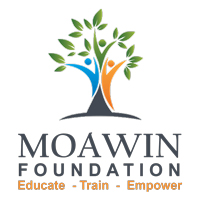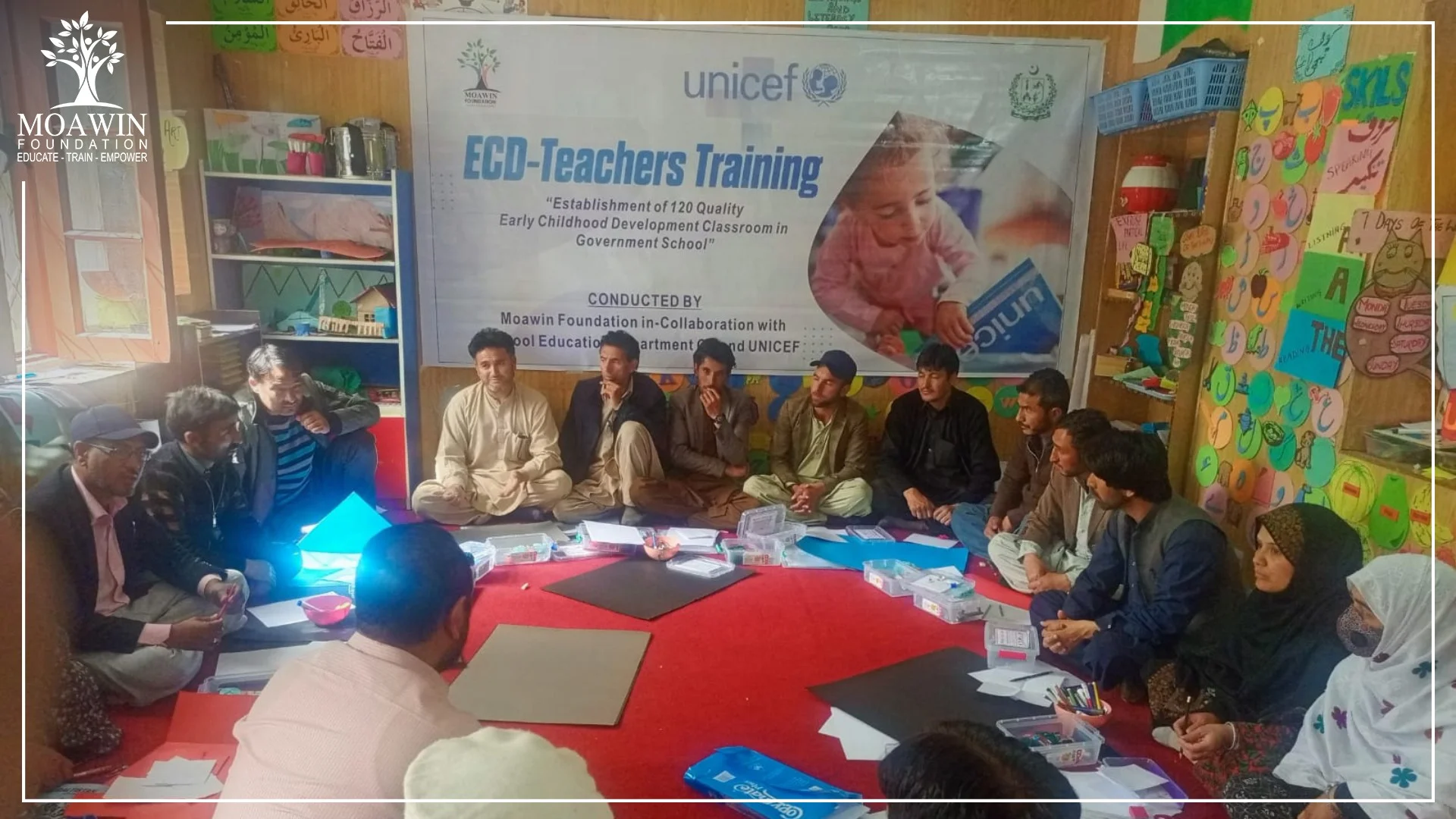Teacher training in Pakistan has long been a neglected area of educational reform. While many organizations and initiatives attempt to address classroom challenges, the system continues to struggle with underprepared teachers, outdated methods, and limited professional development opportunities. As a result, millions of children are left without a strong learning foundation, especially in rural and underserved communities.
In this landscape, Moawin Foundation stands out as a model that goes beyond traditional training workshops. Through its school adoption model and hands-on development approach, Moawin is filling the gaps that wider national and organizational efforts often overlook.
Why Effective Teacher Training in Pakistan Remains a Challenge
Across Pakistan, teachers are expected to manage crowded classrooms, varying learning abilities, and limited resources. Yet most receive little to no formal or ongoing training.
Challenges include:
- Overreliance on rote memorization instead of conceptual understanding
- Minimal exposure to creative or student-centered teaching methods
- Lack of digital literacy or access to modern teaching tools
- Limited professional development opportunities, especially for rural educators
How Moawin Foundation Goes Beyond Conventional Teacher Training in Pakistan
While numerous organizations conduct training workshops, Moawin Foundation has developed a unique method that integrates training directly into the fabric of schools through its Public–Private Partnership and School Adoption Model.
Instead of one-off training sessions, Moawin provides continuous mentoring, practical classroom support, and resources that allow teachers to implement new methods immediately. This approach helps bridge gaps that traditional training programs fail to address.
Moawin’s Approach Stands Out Because It Is:
Practical, not theoretical
Teachers are trained inside real classrooms, using real-time challenges as learning opportunities. This ensures learning translates into daily teaching practice.
2. Designed for underserved regions
Moawin’s adopted schools are located in highly challenging regions, including Gilgit-Baltistan, Sheikhupura, Pind Dadan Khan, and marginalized settlements in Karachi. Most organizations avoid these areas due to logistical difficulties.
3. Supported with infrastructure and digital tools
Training is paired with:
- Digital learning resources
- Tablets and e-learning tools
- Classrooms equipped for interactive learning
Training alone cannot bring change unless teachers have the tools to apply it, and Moawin makes sure they do.
4. Continuous and scalable
Moawin doesn’t believe in one-time workshops.
Its model ensures ongoing professional development through:
- Refresher trainings
- Digital literacy support
- Classroom coaching
- Regular assessments and feedback
This continuity is one of the biggest reasons Moawin’s approach has succeeded where many others have not.
Inside Moawin Foundation’s Teacher Training Program
Moawin Foundation’s teacher training initiatives are built on strengthening foundational skills and modern teaching competencies. Teachers are guided through classroom management strategies, lesson planning, and child-centered teaching methods that promote active learning. They learn how to engage students with creative techniques that go beyond textbooks and memorization, helping them build critical thinking and communication skills.
Digital literacy is another key component. As classrooms evolve, Moawin equips teachers with the confidence and ability to use digital tools, tablets, and online learning platforms to enhance lessons and reach students more effectively. This combination of foundational pedagogy and technology integration prepares educators to meet the needs of modern learners. Special focus is also placed on early childhood education, where teachers learn how to nurture young learners during the most important years of cognitive and emotional development. Together, these elements create a comprehensive training framework that empowers teachers to succeed in diverse classroom environments.
Moawin Foundation’s Real Impact
Unlike many training programs that end after a workshop, Moawin’s training translates into measurable improvements across its adopted schools.
Key Achievements:
✔ 3,686 teachers trained so far across Pakistan
✔ Enhanced teaching quality in 338 adopted schools
✔ Better learning outcomes for 45,668+ students
✔ Strong focus on rural, remote, and underprivileged communities
This means Moawin’s teacher training is not theoretical; it directly improves student learning in classrooms where help is most needed.
How Moawin Surpasses Typical Teacher Training Efforts
While other organizations conduct training programs, Moawin’s competitive advantage lies in its model, not just its workshops.
1. Embedded Inside Schools
Most competitors run short-term training sessions.
Moawin trains teachers within the adopted schools for direct implementation.
2. Comprehensive Support
While other NGOs and organizations often focus on teaching methods alone.
Moawin provides:
- Infrastructure upgrades
- Digital tools
- Classroom resources
- Regular monitoring and evaluations
This holistic support strengthens training impact.
3. Long-Term Sustainability
Many training initiatives spark enthusiasm but fade quickly.
Moawin builds sustainable systems so that even if Moawin steps away, teachers continue teaching effectively using the upgraded tools and methods.
Why Teacher Training Matters
Training teachers creates long-term, widespread change:
- Better-trained teachers → Improved student learning
- Strong foundation → Higher literacy rates
- Empowered youth → Economic progress
- Skilled educators → Stronger communities
Teacher training is one of the highest-impact, most sustainable ways to improve education in Pakistan.
Moawin Foundation amplifies this impact by ensuring that trained teachers work in schools that are supported, supervised, and continually strengthened.
Moawin Foundation: Revolutionizing Teacher Training in Pakistan
Among the many organizations working to improve education, Moawin Foundation stands out because it goes beyond surface-level initiatives. Moawin transforms classrooms by integrating training with enhanced infrastructure, digital learning, and school adoption.
As Pakistan continues to face deep-rooted educational challenges, Moawin’s teacher training efforts offer a replicable, sustainable, and impactful model for national change.


